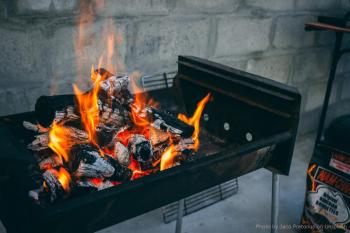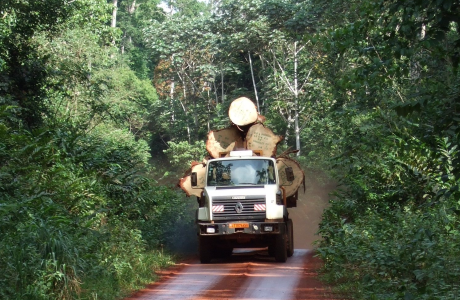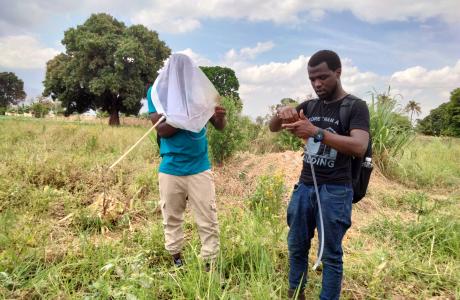Tropical wood under our barbecue grills?
At WWF Belgium’s request, the RMCA Wood Biology service analysed charcoal sold in different stores around the country. Half of the examined bags contained tropical wood – and sustainable forest management certificates or mentions of origin were often missing.

Global reference centre
With its 80,000 wood samples, the RMCA xylarium is the third largest wood collection in the world. By combining the use of this reference collection with fieldwork, museum scientists carry out numerous investigations in forest ecology.
In addition to research, the Wood Biology service also provides services such as wood identification. ‘The analyses we carried out for WWF fall under this category which represents a significant part of our work,’ explains service head Hans Beeckman.
Under a microscope
RMCA scientists took pieces of charcoal from 18 bags sold in supermarkets and hardware stores in Belgium to examine them under a microscope. ‘This way, we could study the anatomy of the wood charcoal,’ said Kévin Liévens, who performed the analyses. Even after wood is carbonized, its cellular structure remains intact. By comparing the anatomical characteristics of the samples with the reference collection, researchers can identify the wood species used.
Tropical roots for half of the samples
The RMCA researchers checked if the charcoal bags contained wood from the tropics or temperate regions. They found that half of the samples tested were wholly or partly from tropical sources – with no indication of origin or sustainable forest management certificate.
Charcoal production and deforestation
According to the WWF, charcoal imported into Belgium often comes from countries with rapidly vanishing forests, such as Nigeria, which has the highest deforestation rate in the world.
They added that a significant amount of charcoal also comes from European temperate forests, such as those in Ukraine. While Ukrainian forests are threatened by illegal logging, there are no controls on the origin or production method for charcoal.
Responsible grilling?
The EU law that prohibits the sale of illegally harvested timber(EU Timber Regulation) does not cover timber products such as coal. ‘Yet wood charcoal production is a bigger contributor to deforestation than illegal logging in tropical regions,’ said Beeckman.
WWF advises consumers and companies to opt for FSC-certified charcoal. This label guarantees that the product comes from sustainably managed forests.


